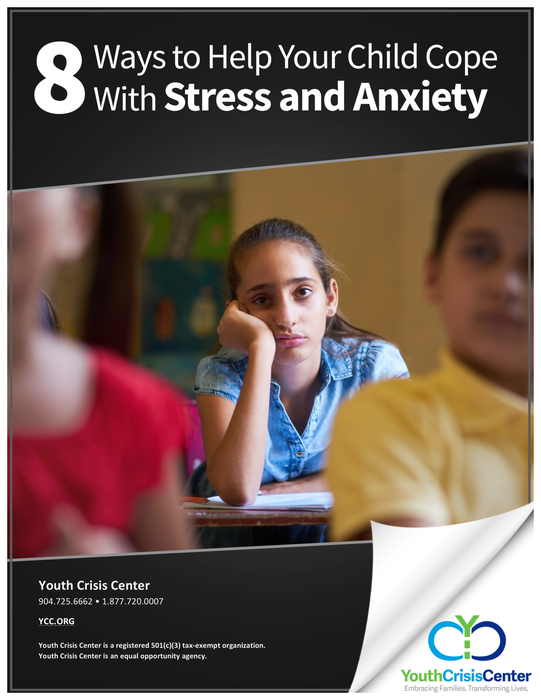During the month of April, the National Youth Violence Prevention Campaign is recognized for one week. This year, National Youth Violence Prevention Week takes place April 12 – April 16th. Around 200,000 homicides occur annually worldwide among youth between the ages of 10-29. According to the World Health Organization, that makes up 43% of the total number of global homicides each year. For those who are lucky enough to survive a violent attack, most will require hospitalization and be affected by lifelong psychological damage.
The goal of the weeklong National Youth Violence Prevention initiative is to raise awareness to educate students, school staff, parents and the general public on effective ways to prevent or reduce youth violence in communities across the country.
Deferment Programs vs. Arrest Records
Jacksonville, Florida, is working to reduce youth violence by intervening at the earliest sign a youth may be in trouble. The deferment program, called the Civil Citation Program, is offered through the Fourth Judicial Circuit for qualified juvenile offenders.
The Civil Citation Program allows law enforcement and juvenile justice stakeholders to issue a citation to qualified juvenile offenders to join the program rather than being arrested and entering the criminal justice system. The purpose of this program is to increase public safety by assessing and referring at-risk, qualified juvenile offenders to intervention programs while also reducing recidivism.
Signs an Individual May Be At Risk for Youth Violence
- attention deficit, hyperactivity, conduct disorder or other behavioral disorders
- involvement in crime
- early involvement with alcohol, drugs and tobacco
- low commitment to school and school failure
- unemployment
- exposure to violence in the family
Teen Court Holds Teens Accountable
After a teen is issued a civil citation, it’s forwarded to the Court Administration Teen Court Director and reviewed to determine which curriculum, under the Civil Citation Program, is most appropriate for that youth. From there, the case will be handled by the Teen Court or one of Jacksonville’s Neighborhood Accountability Boards. Youths are then held accountable for their crimes and are required to complete community service hours and other sanctions that could include individual and family counseling, early intervention, letters of apology or academic monitoring.
This program promotes accountability, immediate intervention and prompt consequences for the qualified juvenile offenders. “This expanded program provides swifter accountability and intervention through smart justice – a benefit to juveniles and taxpayers alike,” said Melissa Nelson, State Attorney for the Fourth Circuit.
Youth Crisis Center Provides Diversion Opportunity
The diversion programs offered by YCC can be completed either through its Outpatient Behavioral Health program or Residential Crisis Care program. Throughout six different programs, YCC provides short-term crisis care, mental health counseling, family therapy, and transitional living services for young adults. “The Youth Crisis Center has been a readily accessible resource for the Jacksonville Sheriff’s Office (JSO) for many years,” said JSO Assistant Chief Adam Pendley. “The services that YCC offers enhance law enforcement efforts by getting to the root cause of what influences youth violence, and transforms their lives by providing them with the help and intervention at an early age.”
Taxpayer Savings
The Civil Citation Program saves taxpayer dollars by producing cost-effective outcomes. Rather than arresting troubled youth, the Civil Citation Program works to identify and address the causes of their misbehavior and enacts disciplinary actions that will discourage them from completing future offenses. Upon successful completion of the requirements of the Civil Citation Program, there will be no arrest on their record.
The Civil Citation Program is important because it prevents life-long consequences associated with juvenile arrests, adjudication, or convictions. “Arrest and prosecution are a first thought for many who consider ways to fight violent crime, but it’s important to remember that arrest for some may do more harm than good,” insists Pendley. “These types of diversion programs, like the Civil Citation Program, still hold the offenders accountable, but in a more proactive way that helps them long term.”
Click to learn more about the Youth Crisis Center’s involvement with the Civil Citation Program.
Are you dealing with a crisis or unmanageable youth? The Youth Crisis Center’s Residential Crisis Care program provides short-term residential services and therapy for youth ages 10-17. Our residential therapists work with youth and their families to address the immediate crisis and help provide long-term solutions to handle future concerns once the youth return home. Click to fill out the Residential Crisis Care form on our website and a therapist will contact you, or call our crisis hotline at (904) 725-6662 to speak with someone immediately. Click more to learn about 8 ways to help your child cope with stress and anxiety.


